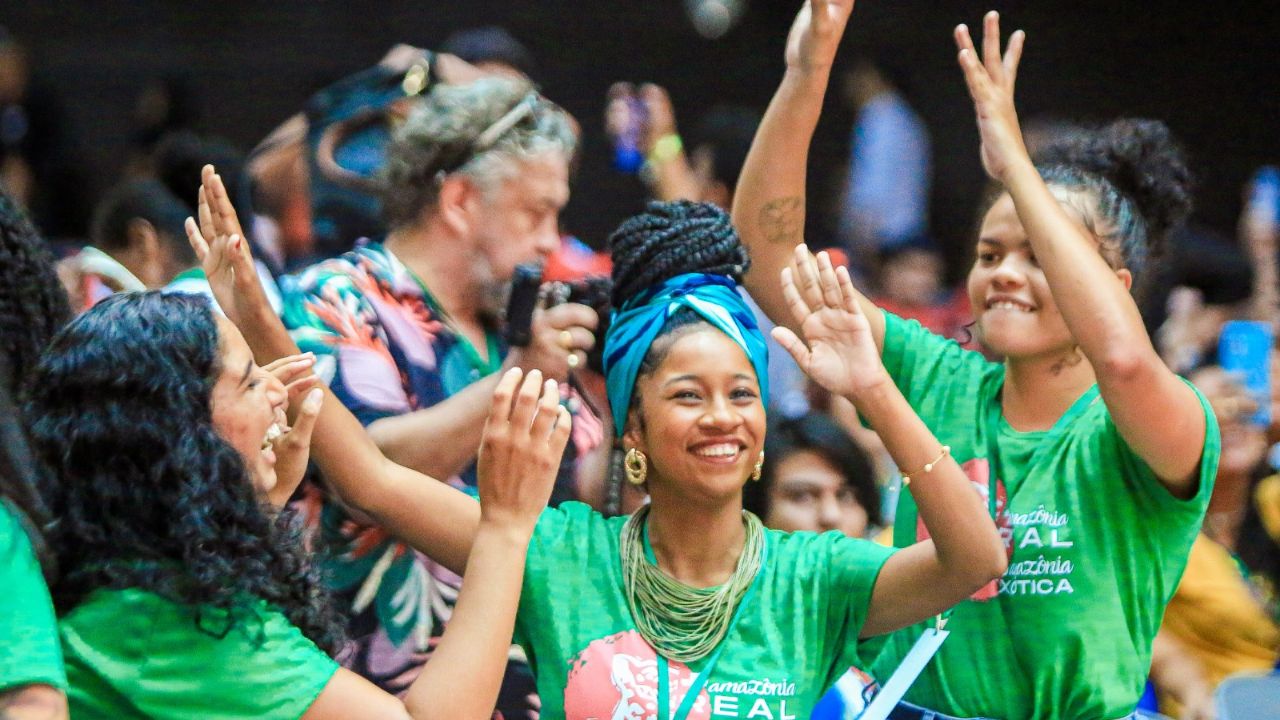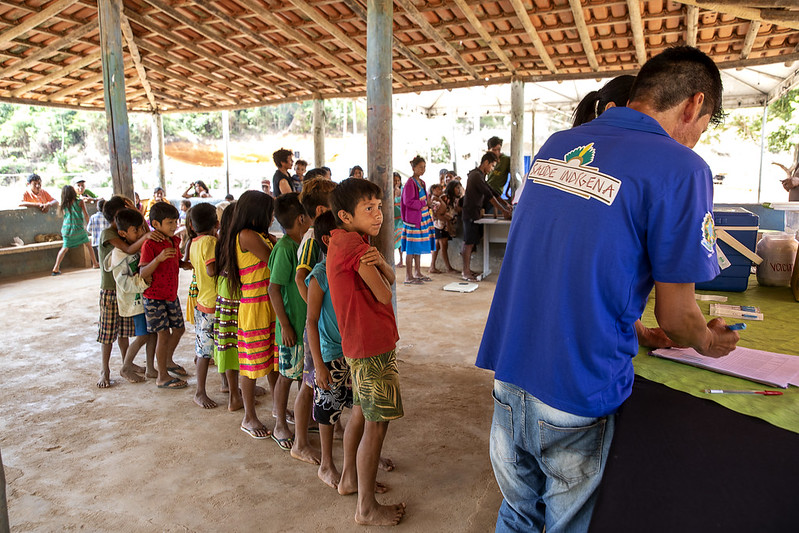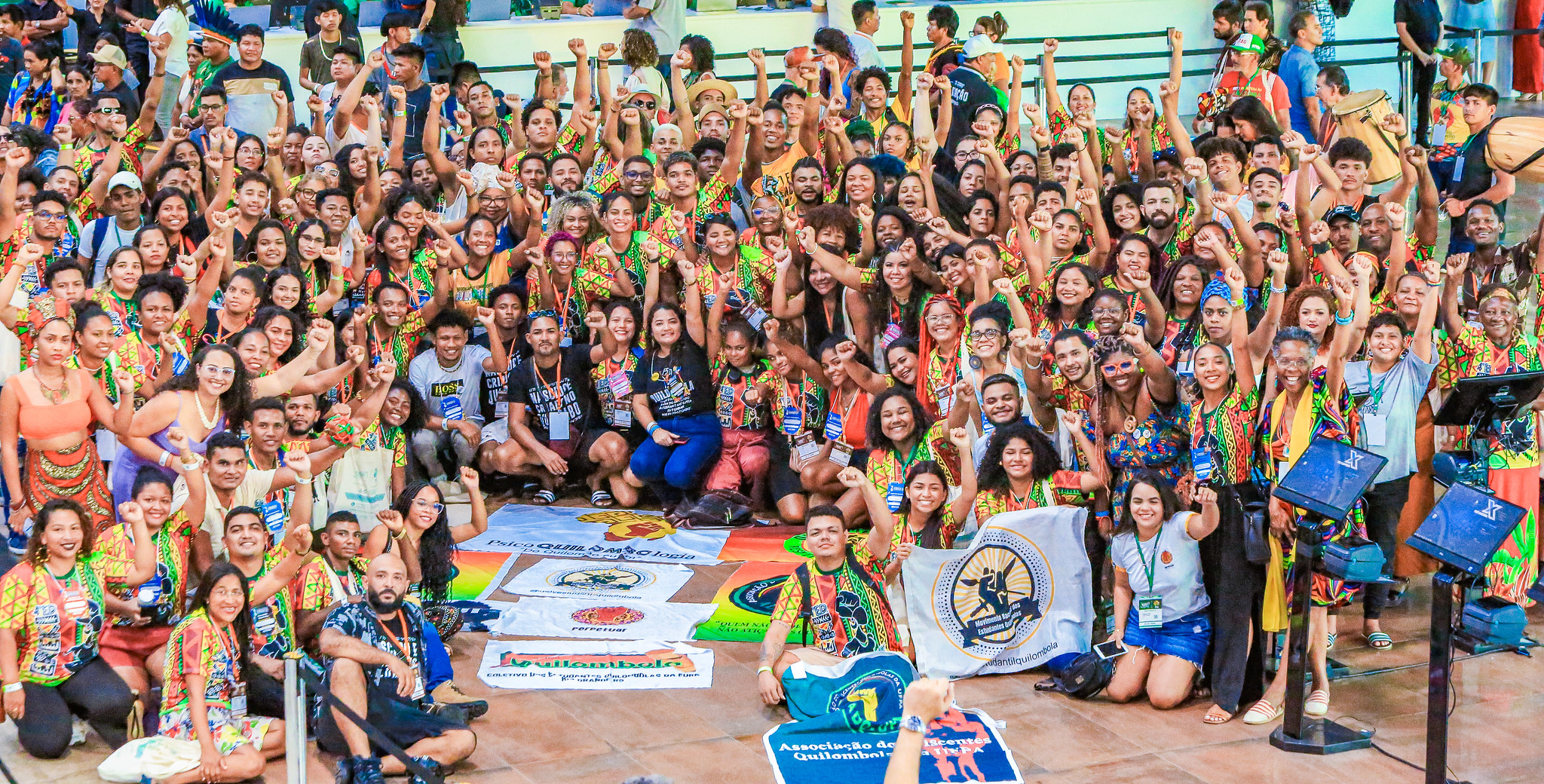A united society for a sustainable future
Social G20: the initiative reinforces the Brazilian presidency's proposal to valorize the agendas and proposals of civil society in order to influence the debates of the leaders of the world's biggest economies. Discussions and referrals are made through thematic Engagement Groups, which will hold more than 50 meetings throughout the year.

The Social G20, an innovation proposed by the Brazilian presidency, has the mission of broadening the participation of non-governmental actors in the discussions and decision-making processes of the G20. Debates and proposals are made through thematic engagement groups, which increase the number of voices heard by the leaders of the world's richest countries. During Brazilian management, all the groups will be coordinated by the country's institutions.
Gustavo Westmann, international advisor to the General Secretariat of the Presidency of the Republic of Brazil and coordinator of the Social G20, defends that "a major contribution of the Brazilian presidency will be to increase social participation in the elaboration of proposals for the G20 debate". Another innovation is that for the first time there will be a forum for meeting and balancing the groups' proposals, the G20 Social Summit, which will be held before the Summit of Heads of State and Government. The meeting will release a final document consolidating the decisions of the engagement groups.
The intention is that the debates and proposals presented by the Engagement Groups to reflect common global challenges, allowing civil society collaborations to be considered and, when possible, incorporated into the Leaders' Final Declaration. “The thematic challenges for the debate, such as women's empowerment, ending poverty and strengthening democracy, will qualify the discussion and seek to influence the G20," believes Luciana Servo, president of the Institute for Applied Economic Research (Ipea), which composes the T20 secretariat responsible for proposing public policies based on evidence.

The engagement groups have existed since the first conference in 1999, when it was still at ministerial level, and were formed to encourage the participation of different sectors of civil society, such as non-governmental organizations, business entities and Think Tanks, in discussions on global issues. They provide diverse perspectives and contribute to the formulation of more inclusive and comprehensive policies.
There are the 13 engagement groups of the Social G20 - C20 (Civil Society), T20 (Think Tanks), Y20 (Youth), W20 (Women), L20 (Labor), U20 (Cities), B20 (Business), S20 (Sciences), Startup20 (Startups), P20 (Parliaments), SAI20 (Courts of Auditors), J20 (Supreme Courts) and the newly created O20 (Oceans) - which provide the structure for forwarding the demands and aspirations of the societies of the G20 countries to their leaders.
Throughout the period of the Brazilian presidency of the G20, there will be more than 50 meetings of the engagement groups in coordinated initiatives between the Sherpa and Finance tracks and non-governmental events. The peak of the Social G20 will be the Social Summit, scheduled for November 15-17, 2024, in Rio de Janeiro, on the eve of the G20 Leaders' Summit.
This will be the platform that will highlight the work carried out throughout the year by society, presenting an overview of the experiences shared. The expectation is that these dialogues will open up new ways of building policies that reflect the fundamental values of social, economic and environmental justice, besides the fight to reduce all forms of inequality.
Find out more about the engagement groups and how to collaborate
C20 (Civil Society)
The C20 Engagement Group represents civil society and is an inclusive forum for non-governmental organizations and social movements. Its mission is to ensure that society's voices and concerns are heard and considered in the G20's deliberations and to promote a participatory and democratic approach to policy-making.
T20 (Think Tanks)
The T20 is composed of research institutions and Think Tanks, study centers or research institutes. Its function is to provide technical analysis and evidence-based policy proposals to guide G20 discussions. It seeks to ensure that G20 leaders' decisions are formed by a solid and broad comprehension of global challenges.
Y20 (Youth)
The Y20 Group represents the voice and perspectives of young people. It involves young leaders and activists in the discussion of global issues and is the space for tomorrow's leaders to contribute innovative solutions. The Y20 promotes generational inclusion in politics, recognizing the role that young people play in the future.
W20 (Women)
The W20 Group concentrates on gender issues and represents women in the G20 debates. Proposals will promote gender equality by addressing specific challenges faced by women around the world. It integrates women's perspectives into policies and promotes women's inclusion and empowerment.
L20 (Labor)
Representing workers, the L20 Group will present concerns related to employment, labor rights and fair working conditions to be considered in the G20 discussions. Its action creates an equitable approach to the world of work and promotes policies that benefit workers around the world.
U20 (Cities)
The U20 Group is dedicated to urban issues, representing cities in the G20. It promotes sustainability, resilience and equitable development in metropolitan areas. Recognizing the growing importance of cities on the global scenario, the U20 highlights housing and displacement issues in G20 deliberations.
B20 (Business):
Representing the business sector, the B20 Group has the objective of providing a business perspective on global policies. It seeks to promote a favorable business environment, boost sustainable economic growth and highlight corporate social responsibility in G20 debates.
S20 (Science)
The S20 Group brings together experts and academics to highlight the importance of science and research in G20 discussions. It ensures that decisions based on scientific evidence contribute to effective solutions in areas such as health, the environment and technological innovation.
Startup20 (Startups)
Startup20 represents the ecosystem of startups, technological innovation companies, bringing the entrepreneurial perspective to the G20 discussions. It promotes innovation, supports entrepreneurship and addresses specific challenges faced by startups, recognizing the important role they play in economic development.
P20 (Parliaments)
Representing parliaments, the P20 Group seeks to ensure the effective participation of the legislative authority in G20 decisions. Its mission is to promote transparency, accountability and democratic representation in global politics.
SAI20 (Courts of Auditors)
The SAI20 Group brings together representatives of the courts of auditors and promotes financial responsibility and transparency in the G20's actions. It proposes guidelines to ensure efficient management of public resources and accountability for the bloc's activities.
J20 (Supreme Courts)
Representing the supreme courts, the J20 Group highlights the importance of the Rule of Law in the G20 discussions. It promotes fundamental legal principles and seeks the protection of human rights globally.
O20 (Oceans)
It is the newest member of the Social G20. The O20 Group focuses on ocean issues, promotes marine sustainability and addresses challenges related to ocean ecosystems. It highlights the importance of preserving the seas and the sustainable use of their resources in G20 debates.
